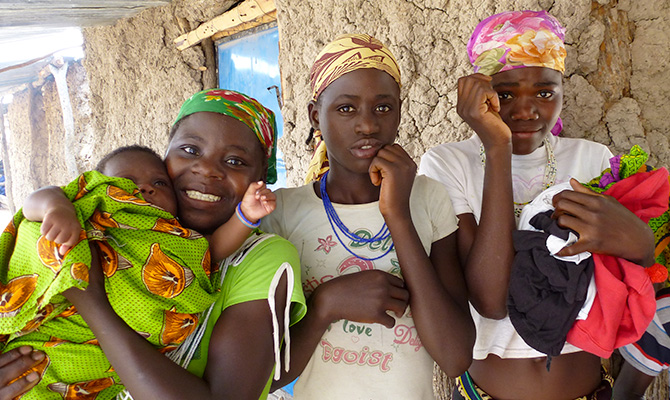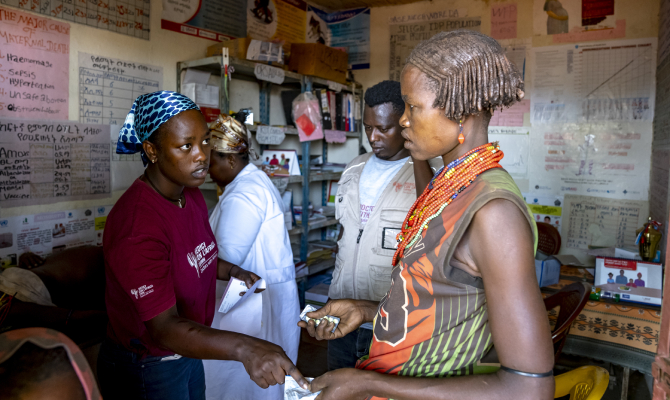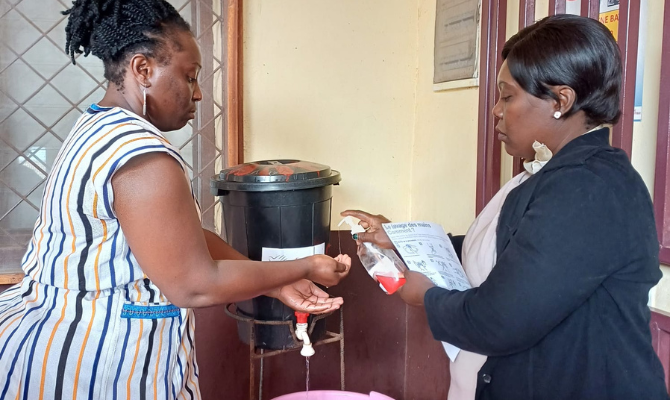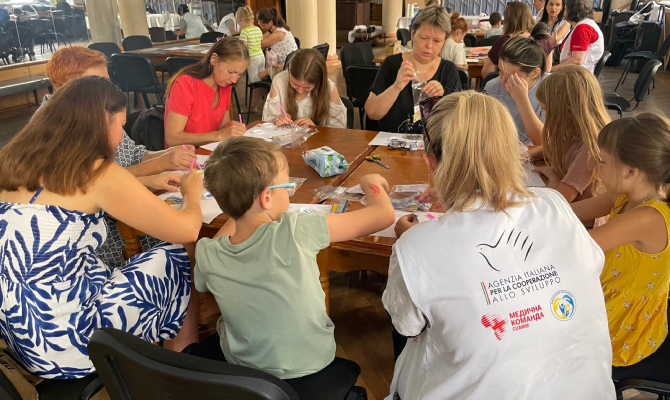1st of December. On World AIDS Day, Doctors with Africa Cuamm draws attention to what, especially in most sub-Saharan African countries, still remains a drama that affects many, indiscriminately.
Today, there are 25.6 million people living with HIV on the continent, while last year, 660,000 new infections were recorded. as well as over 385,000 AIDS-related deaths. In sub-Saharan Africa, over 77% of new infections among the young population (15-24 years) affect women and girls. A situation that becomes even more dramatic among migrants and refugees, who live in extremely difficult and unsafe conditions.
Although the numbers show a positive trend since the World Health Organisation established this date in 1988, stigma and social discrimination still make the disease a taboo in countries with limited resources. To tackle the AIDS epidemic, Doctors with Africa Cuamm, thanks to the support of many donors, institutions, private entities and Italian and international Foundations, works closely with communities, involving activists, district and village authorities, health workers and local associations, with the aim to inform them about prevention and the importance of antiretroviral treatment.
«Those who are stigmatized feel worthless and with regard to the family they feel more like an obstacle. This causes a very low self-esteem. You convince yourself that you will never find a man to marry you and you collapse. You start neglecting those small actions that allow you to earn something, you feel worthless and you don’t feel the need to continue, not even with medication»
Joyce (fictitious name) is a young woman who lives in Shinyanga, Tanzania. Here, Cuamm has been involved in the fight against HIV for several years, with a particular focus on adolescents, a group where adherence to treatment is lower than in the rest of the population.
Cuamm’s commitment in Mozambique is also significant. For years, Doctors with Africa Cuamm has been carrying out an ongoing commitment in the city of Beira, with numerous local organizations such as the Kuplumussana association, a group of HIV-positive women ‘who help each other’, as its name suggests. At the same time, the associations Anandjira and Geração Saudável – ‘conscious generation’’ – directly address adolescents with theatrical activities, counseling and peer education, to remind them that taking the test and starting antiretroviral therapy as soon as possible is the best way to deal with HIV and live a healthy life. Last year, thanks to the synergy with these local partners, 196,922 young people were involved in education activities on sexually transmitted diseases and 143,162 adolescents were tested for HIV.
«I come here to the SAAJ (Services for Adolescents) to take my HIV/Aids treatment and to listen to the talks and advice they give us,» says Mateus Manuel. « Even when I have nothing to do at home, I come here to talk, to confront myself and to curb my worries. Many things have changed in my life since I found out I was ill and I thank those who help me and give me the possibility of a ‘normal’ life»





